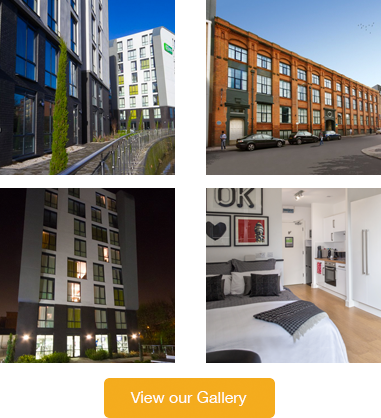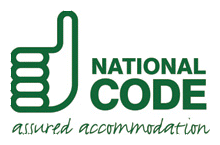There’s a lot to think about when starting – or getting back into – student life. With moving in and starting lectures, it’s easy to miss out on a few important things. Here we’ve pulled together the key tasks you may have missed.
Registering with a doctor
Everyone should register with a local doctor (GP). UK students – as well as those from the European Economic Area (EEA), Switzerland, or a country with a reciprocal health agreement with the UK – can all access free NHS treatment.
If you are an international student and your course of study is longer than six months – or you paid a health surcharge as part of your visa – you will not need to pay a fee to see a GP.
You can find your nearest doctor, on the NHS website. Remember, your GP is not just there to look after your physical health. If you’re feeling low or anxious you can speak to your GP about how you are feeling.
Opening a bank account
You might want to think about opening a new bank account. If you’re an international student, this is particularly important. You need a UK bank account to keep your money safe.
A lot of banks will be offering deals for students, so it’s a good idea to spend some time finding the bank that suits you best. Remember, you can have more than one account if you want.
Banks will require proof of identity and if you’re an international student, you’ll also usually need a signed passport, together with proof of your address in your home country and your address in the UK. Check with your bank what they require.
Register to vote
If you are a student, you may be able to register to vote at both your home and term-time addresses. You can register to vote online
If there is a general election, you’ll only be allowed to vote once, in one location. If your home and university addresses are in two different local authority areas, you can vote in local elections in both areas. This is because they are separate elections.
Get a TV licence
Your room is fitted with a TV. If you use this to watch/record live TV on any channel, you will need a TV licence.
If you watch any BBC programmes on iPlayer (live, catch up or on demand) on any device – including a TV, desktop computer, laptop, mobile phone, tablet, games console, digital box or DVD/VHS recorder – you will need a TV Licence.
You do not need a TV Licence to watch subscription services like Netflix, Amazon Prime or Now TV.
A standard TV Licence costs £154.50. You can pay all in one go, or you can spread the cost via Direct Debit. If you don’t need your licence for a full 12 months, you could apply for a refund.
If you think you don’t need a TV licence you should tell TV Licensing. More advice for students is available on the TV licence website.
Check your council tax exemption
Full-time students don’t need to pay council tax. You will usually be considered a full-time student for Council Tax purposes if your course lasts for at least one academic year and you study at least 21 hours per week.
Living at CODE, you shouldn’t need to apply for council tax exemption as long as you meet the above criteria.
If you need to apply for an exemption, you will need a student status letter, which you should contact your uni about.
Police registration for international students
Your visa sticker in your passport might say you are required to register with the police as an overseas visitor. This is a legal requirement and must be completed within seven days of arrival in the UK. Failure to do so is a criminal offence and could lead to prosecution, a fine of up to £5,000 or a ban from the UK.
And remember, if you need any help or advice, you can speak to the Code Team in the office.



